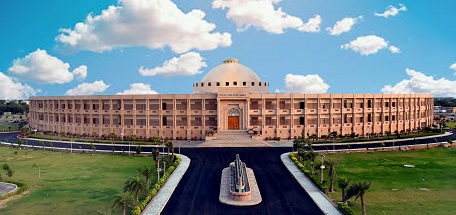Rajasthan High Court Dismisses Charges Under SC-ST Act in Case of Public Servant Abuse, Rules Terms “Bhangi,” “Neech,” “Bhikhari,” and “Mangani” Are Not Caste-Related.

The Rajasthan High Court decided that using insulting words like “Bhangi,” “Neech,” “Bhikhari,” and “Mangani,” which mean “beggar” and “lowly person,” does not count as caste-based insults. Therefore, these terms cannot lead to charges under the Scheduled Castes and Scheduled Tribes (Prevention of Atrocities) Act, 1989 (SC/ST Act). This decision was made in a case where four men were accused of using these offensive terms against public officials during an inspection for encroachment. Consequently, criminal charges were brought against them under Sections 353 (assault or criminal force against a public servant), 332 (causing hurt to a public servant), and 34 (common intention) of the Indian Penal Code (IPC), along with Section 3(1)(X) of the SC/ST Act, which deals with insults aimed at humiliating members of Scheduled Castes and Scheduled Tribes.
Initially, the police submitted a negative report, but a protest petition led the trial court to bring charges against the men. They then approached the Rajasthan High Court to dismiss the charges, especially those under the SC/ST Act. Justice Birendra Kumar noted that the words used were not specific to any caste and there was no proof that the intent was to insult the public servants based on their caste. The Court stated that the terms were not caste names and there was no claim that the petitioners knew the caste of the public servants involved. It was clear that the petitioners did not intend to humiliate the public servants because they belonged to Scheduled Castes and Scheduled Tribes; rather, their actions were a protest against what they believed were incorrect measurements taken by the officials.
Leela Dhar Khatri represented the petitioners, while Surendra Bishnoi served as the Public Prosecutor for the Respondents. The Court noted that there were no independent witnesses to verify that the incident happened in public, as the only witnesses were the informant and the involved officials. The Court decided to drop the charges under the SC/ST Act due to a lack of evidence for a caste-based crime. However, it allowed the charges under Sections 353 and 332 of the IPC to remain, as there seemed to be enough evidence that the petitioners obstructed officials in their duties. The High Court partially accepted the petition, removing the SC/ST Act charges but keeping the IPC charges for obstructing public officials.
Cause Title: Achal Singh & Ors. v State of Rajasthan & Anr., [2024:RJ-JD:44266]







